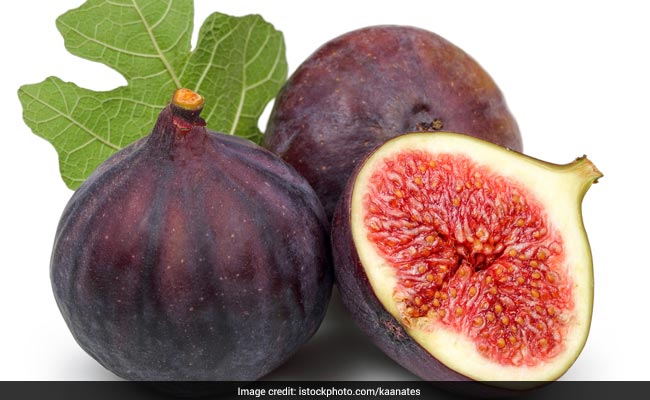
If you are someone who is constantly bothered by constipation problem, then read on. Constipation can turn out to be quite annoying. Not only does it makes one feel uncomfortable, but also comes in way of one's day-to-day activities. People who suffer from constipation need to be extra cautious of what they're including in their diet. Diet plays a major role in determining whether your digestive system is healthy or not. A disturbed digestive system would ultimately lead to constipation. However, a few simple diet tweaks can help you go a long way in managing constipation. Figs, or anjeer, can come quite handy while dealing with this problem.
According to the book, 'Healing Foods' by DK Publishing House, "Figs are lovely, sweet, seasonal fruit, generally available from July to September, and can be enjoyed fresh or dried. Although each has its own benefits, both fresh and dried figs are beneficial foods for blood pressure, thanks to their high potassium levels, and are also beneficial for maintaining a good digestive system and improving bone health."

The benefits of figs are aplenty
What makes anjeer so powerful in managing digestion is its rich fibre content. Including fibre in diet regularly is essential in maintaining a healthy digestive system, which further reduces the chances of constipation. Fibre adds bulk to the stool, facilitating smoother bowel movement.
In order to make the most out of this healthy delight, figs can be consumed fresh or dried. "Compared to their dried counterparts, fresh figs are lower in calories and sugar. They are also high in beta-carotene, which converts to vitamin A in the body," notes 'Healing Foods'. However, on the other hand, dried figs contain more calcium, fibre and protein than fresh figs. Dried figs make for an excellent sweet snack. You can replace your regular candy or chocolate with dried fig instead and savour on it to lose weight. You can also use anjeer as artificial sweeteners. So, while making cakes and puddings, you can easily replace sugar with figs. This would not only up the nutritional quotient of the meal, but also add a nice flavour to it.
However, excess of anything is not good. So, when you consume figs, ensure that that they are not consumed in large quantities. This might affect diabetics as they are highly sweet and may not suit their body type. So make it a part of your diet, but in moderation.
Disclaimer: This content including advice provides generic information only. It is in no way a substitute for qualified medical opinion. Always consult a specialist or your own doctor for more information. NDTV does not claim responsibility for this information.
Track Latest News Live on NDTV.com and get news updates from India and around the world

